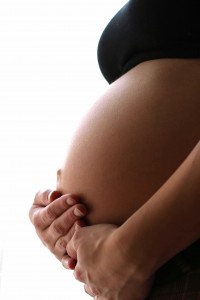Pre/Post Natal Exercise
Exercise can have an extremely powerful contribution to pregnancy if applied correctly. Research has shown that women who exercised more prior to becoming pregnant had greater body satisfaction during the 2nd and 3rd trimesters and less depressive symptoms in early pregnancy. There is also a lot of evidence that shows exercise can be beneficial before and after the birth.
Benefits of Pre-Natal Exercise
- Improved circulation (which can decrease the risk of varicose veins)
- Reduced maternal weight gain – Clapp and Capeless (1990) found that weight gain averaged 3.6 kilograms (8lbs) less in women who exercised throughout there pregnancy
- Improved postpartum recovery (post natal depression)
- Strengthened abdominal muscles
- Reduced leg cramps
- Enhanced muscular balance which can combat bachaches and general muscle & joint soreness
- Reduced swelling
- Eased gastrointestinal discomforts
- Reduction in percieved pain during labour
Benefits of Post-Natal Exercise
- Increased energy levels
- Increased metabolic rate (women with a higher metabolic rate will find it easier to manage bodyweight)
- Increased weight loss
- Improved self-confidence
- Improved posture
- Increased muscular endurance
- Increased stamina
- Reduced anxiety
Weight Gain During Pregnancy
For many women who have worked hard to stay in shape, weight gain during pregnancy can be a considerable worry. It is important to remember though that the weight is there for a good reason and the alternative can have a huge effect on the pregnancy. Women who who are thin at the time they become pregnant and gain little weight during the pregnancy are more likely to deliver babies that are premature (gestation age less then 37 weeks) or of low birth weight (weighing less than 5.5lbs). Both of these problems increase the risk of more health problems then fill term, heavier infants (Graves 1999). With good nutrition and an effective exercise regime weight gain can be kept at an appropriate level and easily lost post-pregnancy.
- Early to mid pregnancy: 7-11lbs (3-5kg) – Most weight gain at this time is maternal fat
- Late pregnancy – 7-11lbs (3-5kg) – Growth of the foetus and placenta are responsible for most of the weight gain at this stage
- The additional fluid retention and blood volume expansion of pregnancy account for an additional 9-15lbs (4-7kg)
Total pregnancy related weight gain (in western society) = 24-33lbs (11-15kg) which is between a 1.7-2.4 stones increase.


